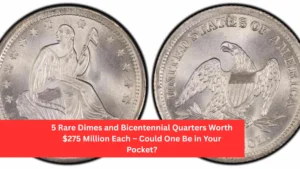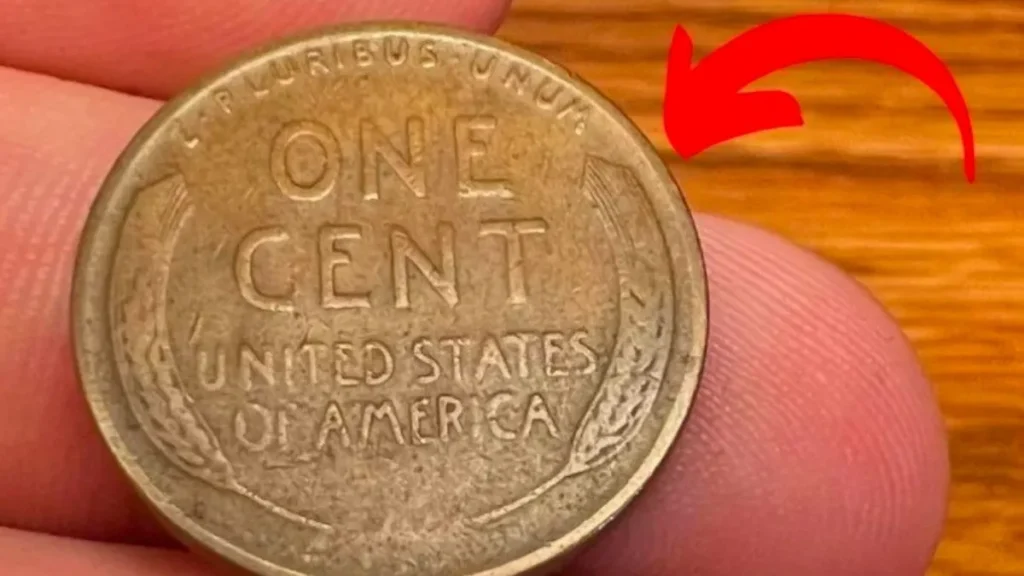Rare coins have always fascinated collectors and treasure hunters alike. Among these, certain dimes and Bicentennial quarters stand out for their rarity and astronomical values. Some of these coins have been valued at up to $275 million each! Could you be holding one right now without even knowing it? Let’s dive into what makes these coins so special and how to spot them in your pocket change.
What Are Bicentennial Quarters and Rare Dimes?
- Bicentennial Quarters were minted in 1975 and 1976 to celebrate America’s 200th birthday. They feature a unique reverse design showing a colonial drummer, a torch, and fireworks — different from the usual eagle design.
- Rare Dimes include certain early 20th-century or error coins that are hard to find and highly prized by collectors.
Why Are These Coins Worth So Much?
The $275 million valuation is based on a few factors:
1. Extreme Rarity
Some of these coins are so rare that only a handful are known to exist. For example, an error coin minted with a wrong metal or a misprinted date can be worth millions.
2. Minting Errors and Varieties
Coins with unique errors, like double strikes, off-center designs, or wrong metals, are highly collectible. These “mistakes” make a coin one-of-a-kind.
3. Perfect Condition
Coins preserved in flawless, mint condition—often called “proof” or “mint state”—fetch much higher prices.
4. Historical Importance
Bicentennial quarters mark a key moment in U.S. history, making them desirable beyond just their metal content.
5 Rare Dimes and Bicentennial Quarters To Watch For
1. 1942-1943 Steel Dime Error
A dime mistakenly struck on steel planchets (metal blanks) instead of the usual copper-nickel. These error dimes are incredibly rare and valuable.
2. 1955 Double Die Dime
This dime features doubled details on the date and lettering, creating a distinct, valuable error.
3. 1976 Bicentennial Quarter – Double Die Reverse
Some Bicentennial quarters show a double image on the drummer or fireworks, making them rare collector’s items.
4. 1976 Bicentennial Quarter – Copper Clad Error
The standard Bicentennial quarters are copper-nickel clad. If one was mistakenly struck on pure copper, it would be worth a fortune.
5. 1944 Steel Dime Error
Similar to the 1942-43 steel dime, this error occurred when steel planchets were used by mistake during copper shortage periods.
How To Check If You Have One
- Look at the date and design: Make sure the coin matches the above descriptions.
- Use a magnet: Steel coins stick to magnets, while copper-nickel ones do not.
- Inspect the coin carefully: Look for doubled images, off-center strikes, or unusual colors.
- Check the condition: A shiny, well-preserved coin is more valuable.
What To Do If You Find a Rare Coin
- Don’t clean or polish the coin.
- Take it to a professional coin dealer or grading service.
- Store it safely in a protective case.
Could One Really Be in Your Pocket?
While the odds are extremely low, the vast number of dimes and quarters minted means that there’s always a small chance that a rare, valuable coin is hiding in your change. Stories of people finding valuable coins in everyday pocket change are common in the coin collecting world — and could happen to you!
Final Thoughts
These rare dimes and Bicentennial quarters show how something as small as a coin can hold immense value. Whether or not you find a $275 million coin, the search can be a fun and rewarding hobby. So next time you check your pocket change, keep an eye out — your next big treasure might be just a coin toss away!



